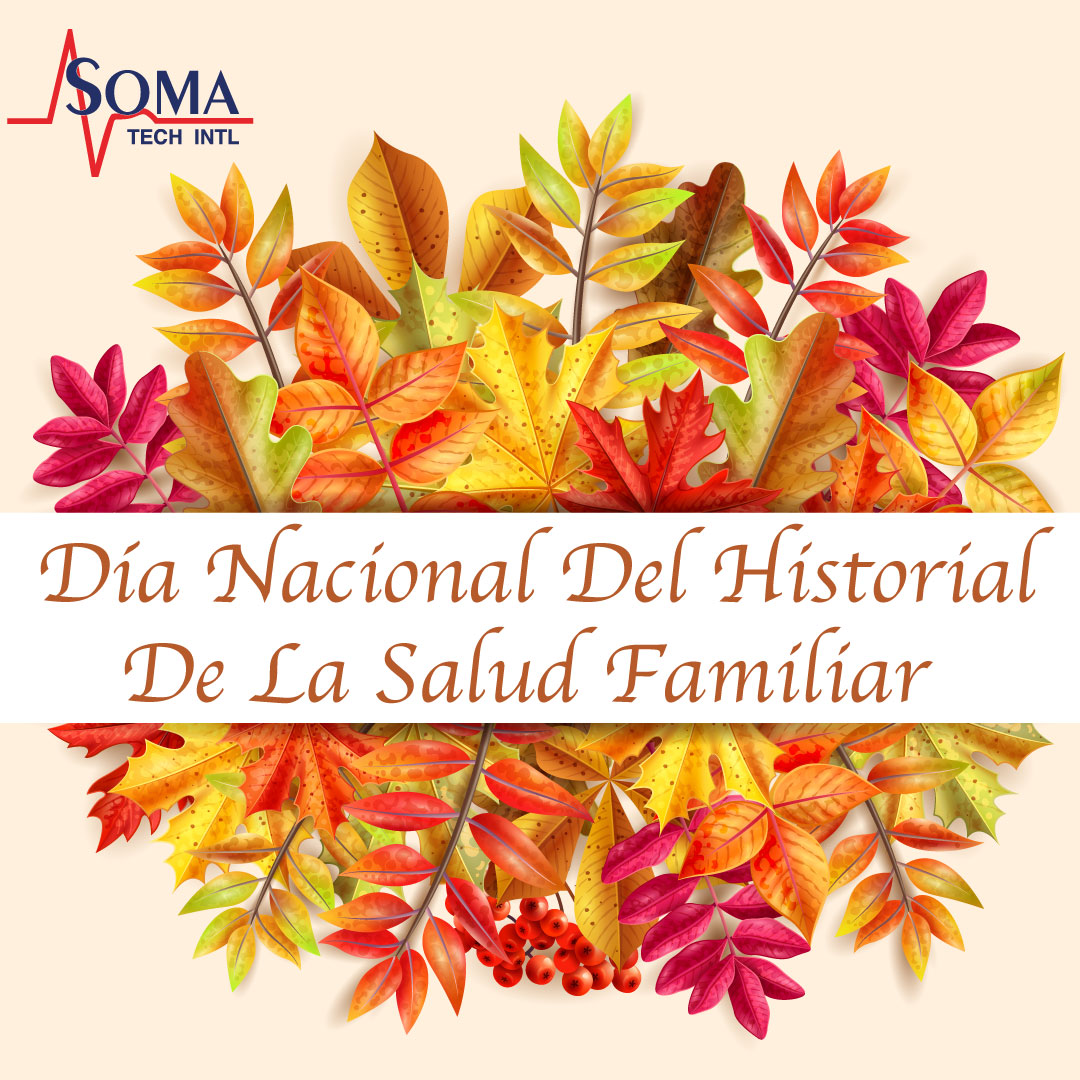DID YOU KNOW THAT THANKSGIVING IS ALSO NATIONAL FAMILY HEALTH HISTORY DAY?
In the United States, Thanksgiving is not just a time to gather with friends and family for a sumptuous meal and to count blessings. November 26th is also National Family Health History Day. A family health history is a record of your family’s illnesses and health conditions. You and your family members share genes. You may also have common behaviors, such as exercise habits and food preferences. You may live in the same area and be exposed to similar things in your environment. Family history includes all of these factors, any of which can affect your health.
Even if you don’t have a parent or sibling with cancer or diabetes, you’re more likely to get a disease if other people in your family have or have had some form of illness. Therefore, compiling your family medical history is an important first step. Take the time to talk with your family about their medical history this holiday season.
FAMILY HEALTH HISTORY DAY TIMELINE
1960 – The colonoscope was developed thanks to fiber optics and engineering advances, making it easier to detect signs of cancer in the body.
1980 – Video chip technology was introduced for laparoscopy, marking a major step forward in colorectal cancer surgery.
2004 – The U.S. Public Health Service Surgeon General declared Thanksgiving Day as National Family Health History Day, reminding us to assess health risks for diseases known to run in families
REASONS FAMILIES NEED TO KNOW THEIR HEALTH HISTORY
If you have chronic conditions that run in your family, it’s important to discuss your family’s health history, especially if any family members died before the conditions became apparent. The most common conditions that run in families are heart disease, diabetes, and cancer (including colon , stomach , endometrium, lung , bladder, breast , and skin), as well as high blood pressure .
HOW TO GATHER YOUR FAMILY HEALTH HISTORY
- Write down the names of your close relatives on both sides of the family: parents, siblings, grandparents
- To learn about your risk of developing chronic diseases, feel free to ask your family members which of these diseases they have had. Questions may include:
- Do you have any chronic illnesses, such as heart disease, diabetes, or health problems like high blood pressure or high cholesterol?
- Have you had any other serious illnesses, such as cancer or stroke? What type of cancer?
- How old were you when you were diagnosed with each of these illnesses or conditions?
- What were the causes and ages of death of any family members who have passed away?
- Record the information and update it whenever you get new information about the family medical history
- Share your family medical history information with your doctor and other family members. If you are concerned about illnesses that are common in your family, talk to your doctor.
HOW TO ACT ON YOUR FAMILY HEALTH HISTORY
You can’t change your genes. But you can change unhealthy behaviors, such as smoking, not exercising, and poor eating habits. If you have a family history of disease, you may benefit more from lifestyle changes and screening tests. In many cases, healthy lifestyle habits can reduce the risk of developing inherited diseases. Screening tests, such as blood sugar tests, mammograms, and colorectal cancer screening, help catch the early signs of disease. Detecting disease early can often mean better long-term health.
FINAL THOUGHT
Family time is special during Thanksgiving. However, this Thanksgiving, take time to educate yourself and your loved ones. Between the stuffed turkey and pecan pies, have a serious conversation about your family health history. In the end, the most important thing to be thankful for is the continued health of you and your loved ones.


